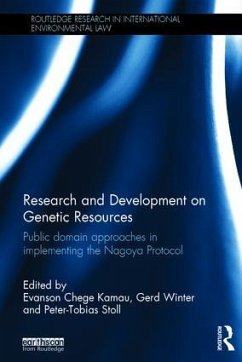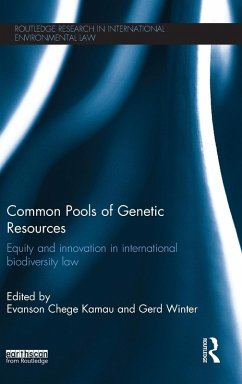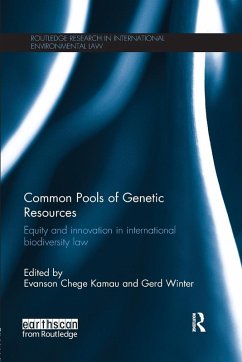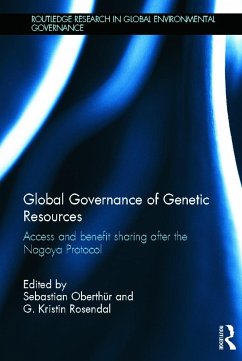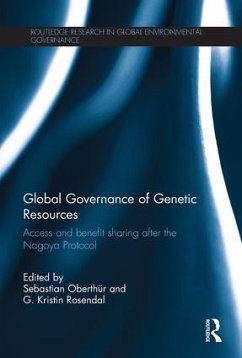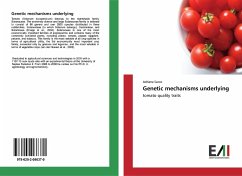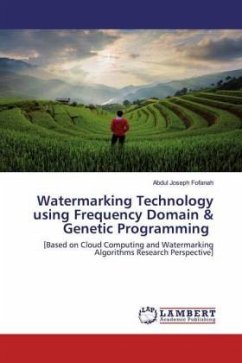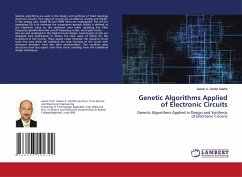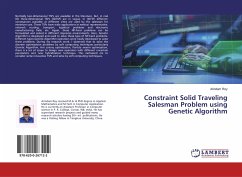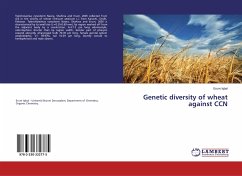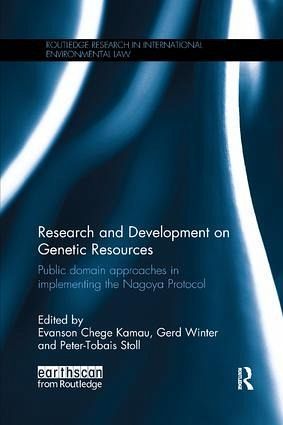
Research and Development on Genetic Resources
Public Domain Approaches in Implementing the Nagoya Protocol
Herausgeber: Kamau, Evanson Chege; Stoll, Peter-Tobias; Winter, Gerd
Versandkostenfrei!
Versandfertig in 1-2 Wochen
70,99 €
inkl. MwSt.

PAYBACK Punkte
35 °P sammeln!
National implementation of the Convention on Biological Diversity (CBD) provisions has yielded enough challenges for providers and users of genetic resources and associated traditional knowledge alike. The Nagoya Protocal brings novel ideas for resolving the challenges plaguing the Access and Benefit-Sharing (ABS) process in general and non-commercial research in particular. This is one of the first books to address research cooperation and facilitated access for non-commercial biodiversity research. It uniquely offers concrete and practicable solutions based on experiences of researchers and ...
National implementation of the Convention on Biological Diversity (CBD) provisions has yielded enough challenges for providers and users of genetic resources and associated traditional knowledge alike. The Nagoya Protocal brings novel ideas for resolving the challenges plaguing the Access and Benefit-Sharing (ABS) process in general and non-commercial research in particular. This is one of the first books to address research cooperation and facilitated access for non-commercial biodiversity research. It uniquely offers concrete and practicable solutions based on experiences of researchers and administrative officials with ABS, and on the interpretation of the Nagoya Protocol on how free and lively taxonomic research can be ensured while at the same time observing obligations of obtaining prior informed consent and sharing of benefits. This book will be useful to students of International Environmental Law, International Biodiversity Law, Intellectual Property Law, Climate Law and Law of Indigenous Populations. With foreword from Executive Secretary CBD, Braulio Ferreira de Souza Dias.





